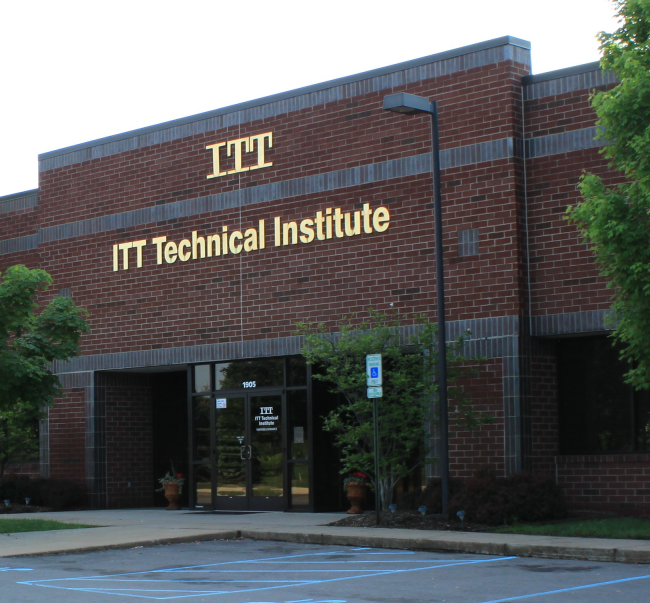 ITT Technical Institute, which operated over 130 campuses and served approximately 45,000 students, announced its closing, resulting from it appears, numerous actions by the Federal Department of Education. The Department of Education in August of 2016 required ITT to post a Letter of Credit in the amount of $153 million dollars, in addition to $94 million dollar Letter of Credit the Institute was required to post only a few months prior. Almost concurrent with the new posting demand by the Department of Education came the Departments decision to prohibit the Institute from receiving Federal Financial Assistance, in the form of Student Loans and Pell Grants.
ITT Technical Institute, which operated over 130 campuses and served approximately 45,000 students, announced its closing, resulting from it appears, numerous actions by the Federal Department of Education. The Department of Education in August of 2016 required ITT to post a Letter of Credit in the amount of $153 million dollars, in addition to $94 million dollar Letter of Credit the Institute was required to post only a few months prior. Almost concurrent with the new posting demand by the Department of Education came the Departments decision to prohibit the Institute from receiving Federal Financial Assistance, in the form of Student Loans and Pell Grants.
Because ITT receives most of its revenue from such Federal Programs, such measures by the Department of Education made the continued operation of ITT impossible. According to the Department of Education website, the Student of ITT Technical Institute and Daniel Webster College, have two options.
The Department of Education Website states that if a Student was attending ITT when it closed on September 6, 2016 OR withdrew from ITT within a period of 120 days prior to September 6, his or her two main options are:
- Apply for a closed school loan discharge OR
- Transfer earned credits to another institution to continue one’s education in a comparable program
The second option is presuming that the second institution will recognize whatever credits the ITT Student seeks to transfer. For Students who do not qualify for either of these options, particularly those who withdrew from ITT beyond the 120 days and possibly those who graduated from ITT, there may be a third option, namely a Discharge of Student Loans through Bankruptcy.
A number of State Attorney Generals are investigating whether ITT defrauded its Students, by misrepresenting employment placement rates, and other criteria. Massachusetts Attorney General Maura Healey is currently suing the Institute on the basis of its job placement rate representations.
If ITT is found liable for defrauding its Students, such Students may have a basis to seek a Discharge of the Student Loans through Bankruptcy Proceedings. Generally, it is somewhat difficult to obtain a Discharge of Student Loans through Bankruptcy. However, if a Student can prove that he or she did not receive a benefit from the issuance of the Student Loan, based upon Fraud or other criteria, a Discharge might be granted by the deciding Bankruptcy Judge. Please read our prior Blog on Student Loans in Bankruptcy, entitled, “Yes Virginia, Student Loans Can Be Discharged In Bankruptcy”.
Other allegations have been leveled against ITT, including allegations of aggressive recruiting tactics, low loan repayment rates, high dropout rates, grade inflation and poor classroom performance by its educators. If valid some of these charges, primarily classroom performance by ITT, may contain a basis for seeking Discharge.
While such charges can provide a basis for a Discharge of Student Loans in Bankruptcy, ITT is not the main culprit in the imbroglio present in higher education, including the high cost of secondary education, poor performance of institutions of higher learning and its educators, and the lack of opportunity presented its graduates.
The main culprit is the Department of Education and the Federal and State Governments that have involved themselves in the education system. The primary reason according to numerous independent studies for the high cost of secondary education is the introduction of governmental involvement in financing State Institutions and its involvement in granting taxpayer funded Student Loans to students of both State and For-Profit Colleges and Universities.
The Author will post a second Article to this Blog, discussing the myriad of ways in which the State but primarily Federal Government, has rendered higher education in the United States both outrageously expensive and generally of poor quality simultaneously.
Image credit: Dwight Burdette (Wikipedia)

